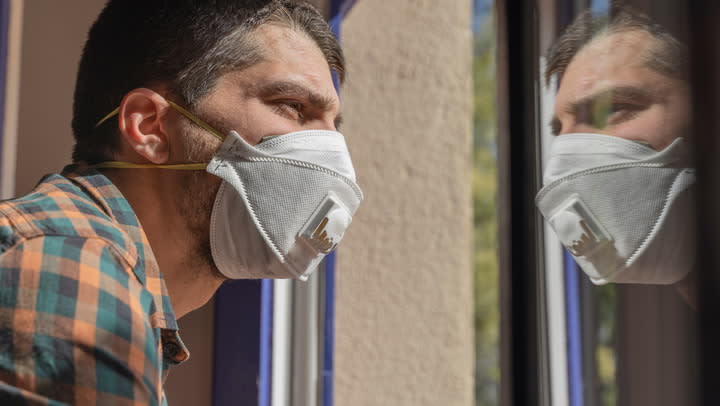If you’re like us here in Miami, at this point in the coronavirus pandemic you have had to come to grips with some harsh realities. Your vacation is canceled. College football games could be a distant memory (this is not a bad thing if you’re a Canes fan). And you won’t see the final season of “Better Call Saul” for a long, long time.
On the bright side, there are books. And you can read them in your own house — on your couch, in your bed, by your pool — without any sick people breathing on you.
In the time of COVID-19, books are a true joy, a reminder that we once lived outside the square footage of our homes and will live there again some day. (Even The Black Death didn’t last forever.)
Books are easy to procure. You can buy them online or in person at a local bookstore (like Books & Books). You can borrow them in a variety of forms from the public libraries (which are open in Miami-Dade County and open for pickup only in Broward County). You can download and listen to them. You can reread them, and you can lend them.
You can even read them at the same time you engage in the other great quarantine activity (eating more than is strictly necessary).
But concentrating is harder than it used to be back in the good old days (January). So if you’re having trouble focusing, here’s what you should do if you want to get some reading done:
Put your phone in another room
This is rule No. 1, especially now, when half our time is spent doomscrolling. Fact: If your phone is within reach, you will be tempted to pick it up and start another Twitter fight with those people who support the other political party. Relax. They will still be there after you’ve read a few chapters. You won’t miss a thing.
Don’t read a book on your phone
Under normal circumstances it is OK to read on your phone. But now you will be distracted by the siren song of the daily coronavirus case count and what politician finally put on a mask. You’ll check texts or worse, be drawn back into the waiting arms of Candy Crush. Don’t do it. Haul out your tablet or an actual book. You’re more likely to stick with it.
Choose a specific time of day to read
Right before bed isn’t always the best time to read, because anxious days spent wondering when the vaccine is coming are exhausting. Open a book, and you’ll pass out in five minutes. So get up early and read with your coffee in the morning or set aside an hour after work. Watch TV after you’ve knocked off a chapter or two.
Read in bed, too
Bedtime should absolutely not be your main reading time. But winding down with some words can make you forget you haven’t had a haircut since March.
Choose shorter books
Yes, we know you want to wade into Ron Chernow’s “Hamilton” because you have watched the Broadway musical 14 times on Disney+. But if you find yourself struggling, maybe try something a little shorter. If you like American history, substitute David McCullough’s fast-paced “1776” or Sarah Vowell’s hilarious “Lafayette in the Somewhat United States.” “Hamilton” will be there when your pre-COVID brain grows back.
Don’t forget genre fiction
This may be the perfect time to read that big fat classic you’ve been putting off. Then again maybe the very idea of “Moby-Dick” makes you want to drown yourself. Maybe all your brain can handle is Lee Child or Nora Roberts or Suzanne Collins. Go with it. There is no shame in action or romance or YA fantasy.
If you must read a big book, set aside time to start it
Wait until your day off and give yourself two hours or so to get into a monster like “The Power Broker” or “Middlemarch” or “Pillars of the Earth.”
Try short stories
If you don’t think you can make it through a 300-page novel, consider short stories or novellas. Stephen King’s latest book “If It Bleeds” features four novellas and at least three of them are good (we’ll let you decide which one fell short).
Listen to an audiobook
There is a really dumb argument going around that audiobooks are not real books. That is nonsense. Forbes reported that audiobook sales rose almost 25 percent in 2018 for a total of almost $1 billion, so somebody is into them. Here are a few good 2020 audiobooks to get you started: “Hidden Valley Road” by Robert Kolker (nonfiction); “Valentine” by Elizabeth Wetmore (fiction); “The Glass Hotel” by Emily St. John Mandel (fiction). Also, if you listen while you walk, you can start to work off those quarantine 15.
Be willing to give up
You’re not required to finish anything you don’t like. Give it 50 pages and if you’re not feeling it, move on. I promise you can find something better.

